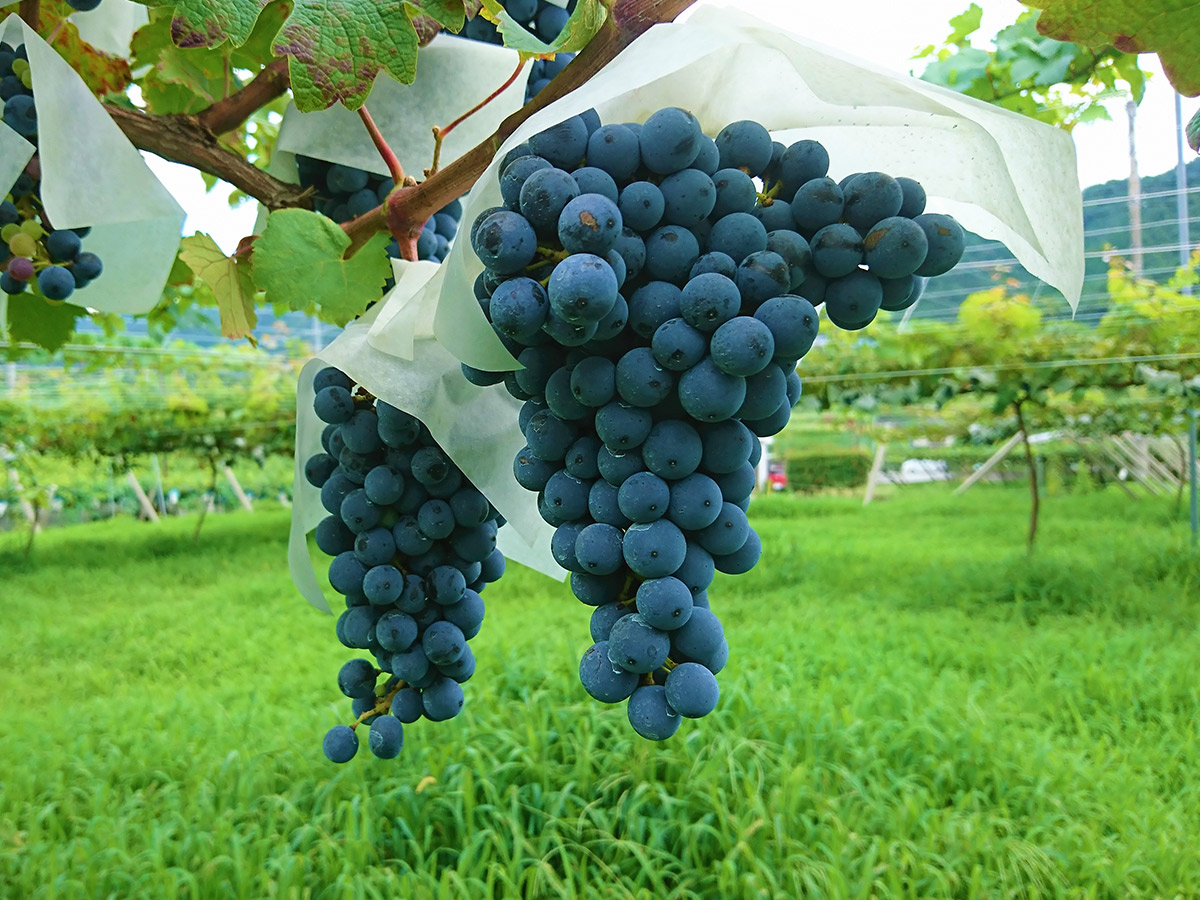Visiting Haramo Wine
~Part I Introduction of the Winemaker~

3181 Katsunuma, Katsunuma-chou, Koushu-shi, Yamanashi
http://haramo.com/
-
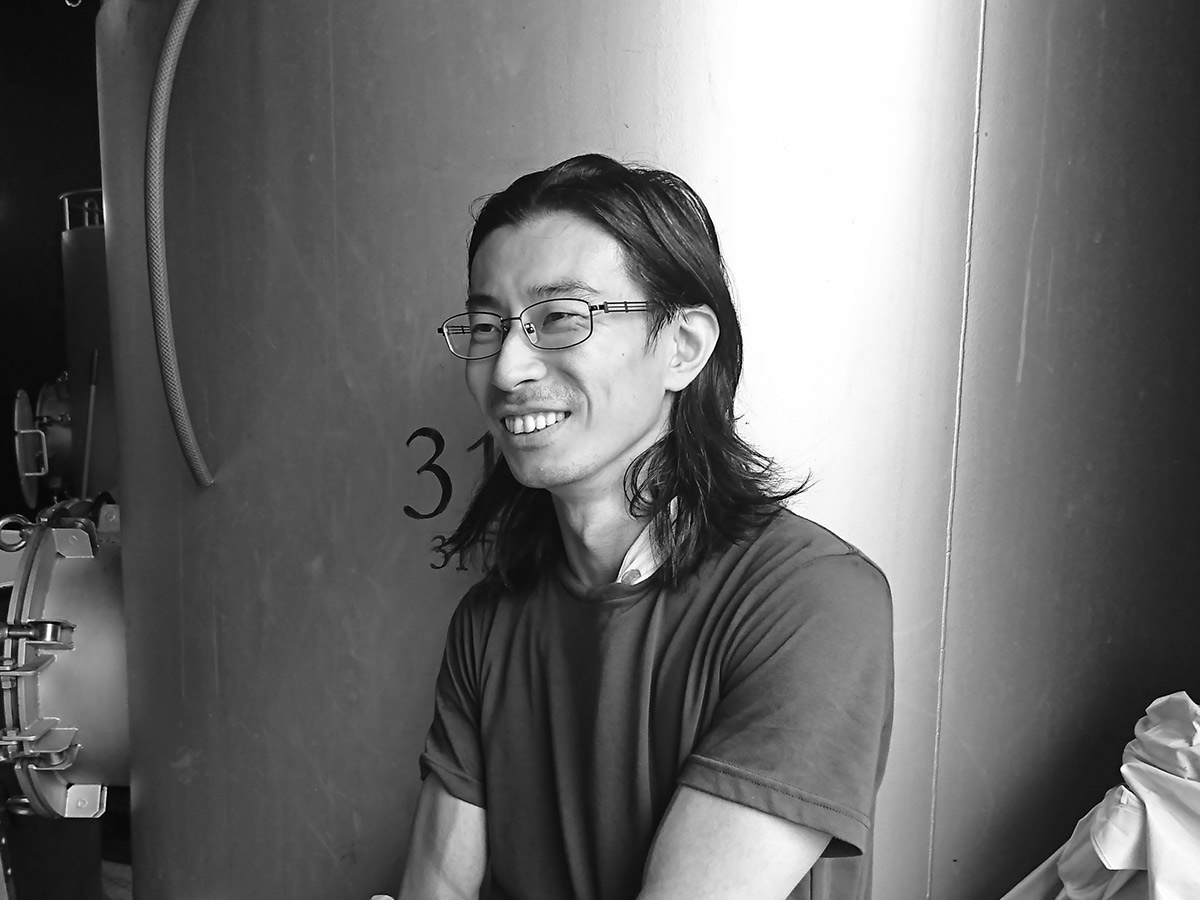
-
About
Mr. Hirochika YamazakiSenior Managing Director of Haramo Wine Co. Inc.
Mr. Yamazaki was exposed to grape growing and winemaking as a child while vacationing at his mother’s family winery, Haramo Wine. He had a strong preference for chemistry and biology growing up and wanted to be involved in manufacturing. He spent a year researching grapes and wine at University of Yamanashi’s Wine Science Research Center while pursuing a major in biotechnology. After graduation, he started working at Haramo Wine in 2009 before training for three months at a winery in New Zealand. Inspired by the high level of knowledge in viticulture and oenology among the local winemakers, he decided to pursue a Graduate Diploma in Viticulture & Oenology at Lincoln University, New Zealand. Since graduating, he has been in charge of Haramo Wine’s vinification since their 2014 vintage.
-
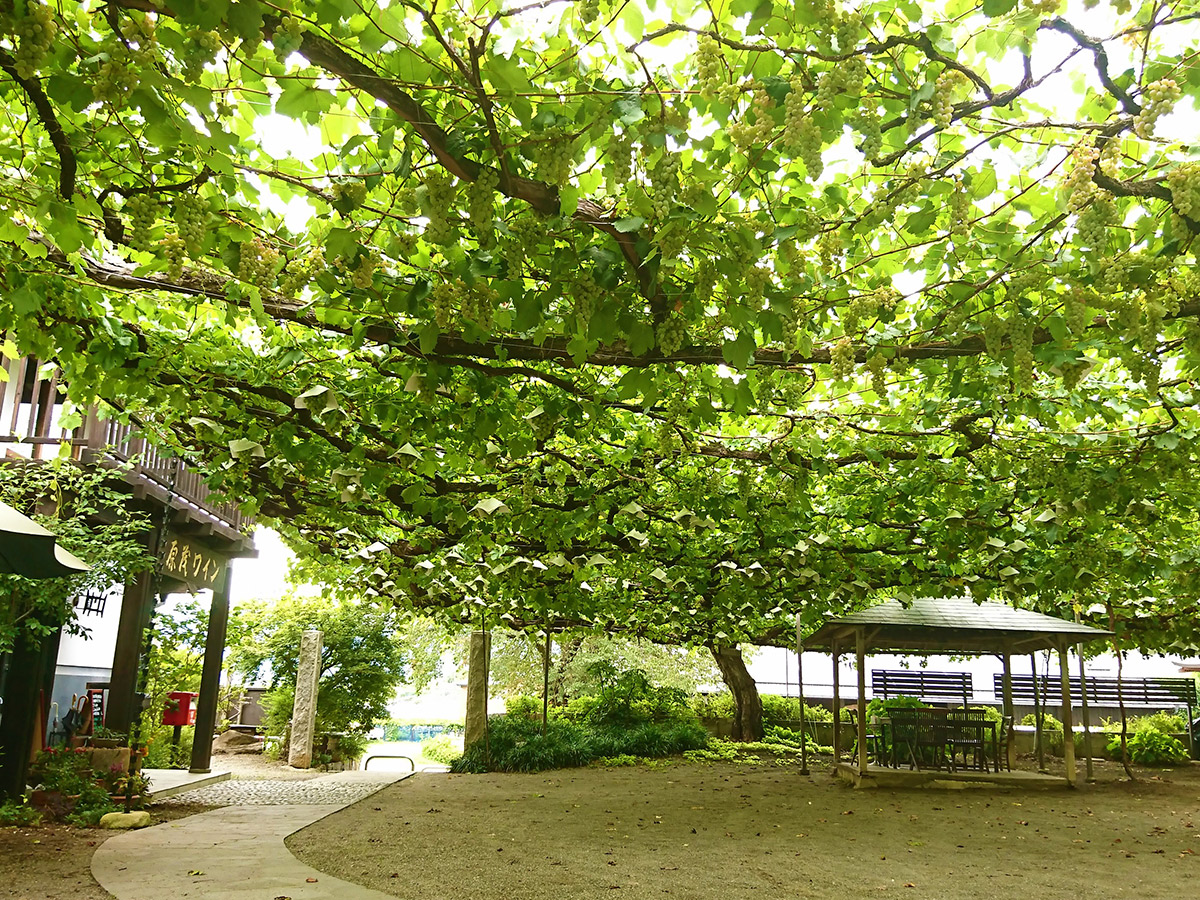
Front of the Wine Shop with Koshu Ripening in Abundance -
History of
Haramo Wine Co. Inc.Started as a Cooperative Brewery
About 100 years ago,Katsunuma had cooperative breweries all around the area and local farmers brought their own grapes to be made into wine. Haramo Wine was founded in 1924 as one such cooperative. In 1973, the company became Haramo Wine Co. Inc. The name of the winery, “Haramo,” is derived from “Hara,” the traditional name for the area and “Mozaemon,” the original family that owned the winery for many generations. A 140-year-old house built during the Meiji era (1868-1912) was renovated into a modern space and serves as a wine shop on the first floor. The grape vines out front look like a roof and the beautiful, wisteria-purple Koshu grapes welcome customers during harvest season.
-
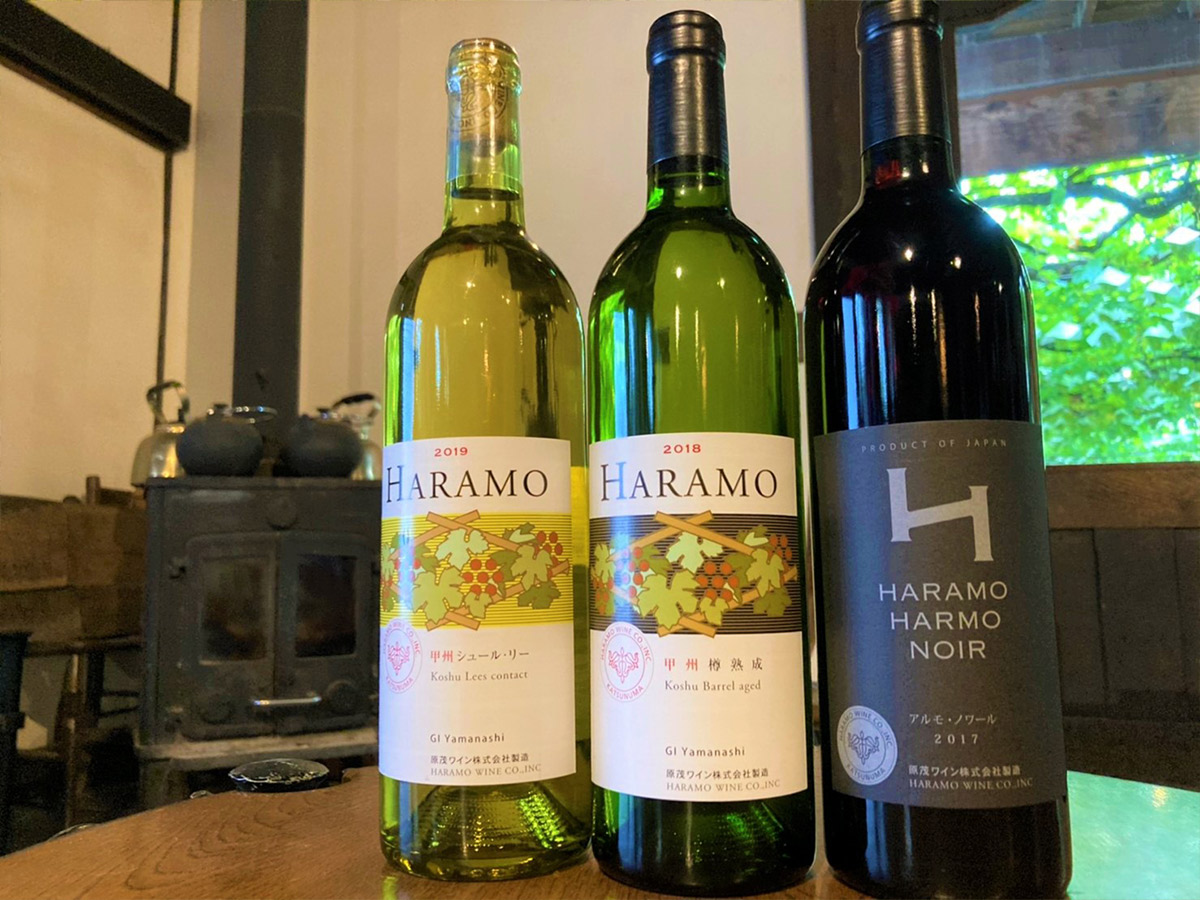
-
Teachings From Our Predecessors in Mind
The strength of Katsunuma, including Haramo Wine, is its solid winemaking technology backed by its long history of winemaking. Utilizing the experiences and skills acquired through generations, Haramo Wine strives to produce Japan Wine with care using local grapes as a small, family-owned winery.
Embody Katsunuma
Character with Grapes
from KatsunumaHaramo Wine still follows the old cooperative tradition of buying grapes from nearby farmers to make wine, not just using grapes from their own vineyards, which is one of Haramo Wine’s attractions.
"I want to focus more on viticulture in the future. The quality of the grapes is directly related to the taste of our winery and I want to embody Katsunuma's character using local grapes. I think that’s what wine is all about," explained Mr. Yamazaki.
Haramo Wine grows a variety of grapes including Chardonnay, Merlot, Armo Noir, and Syrah but with a focus on Koshu, the representative variety of Yamanashi. Their flagship wine is a Koshu wine made by the sur lie method. Mr. Yamazaki is also looking forward to Armo Noir and Syrah, although the number of bottles produced is still rather small.
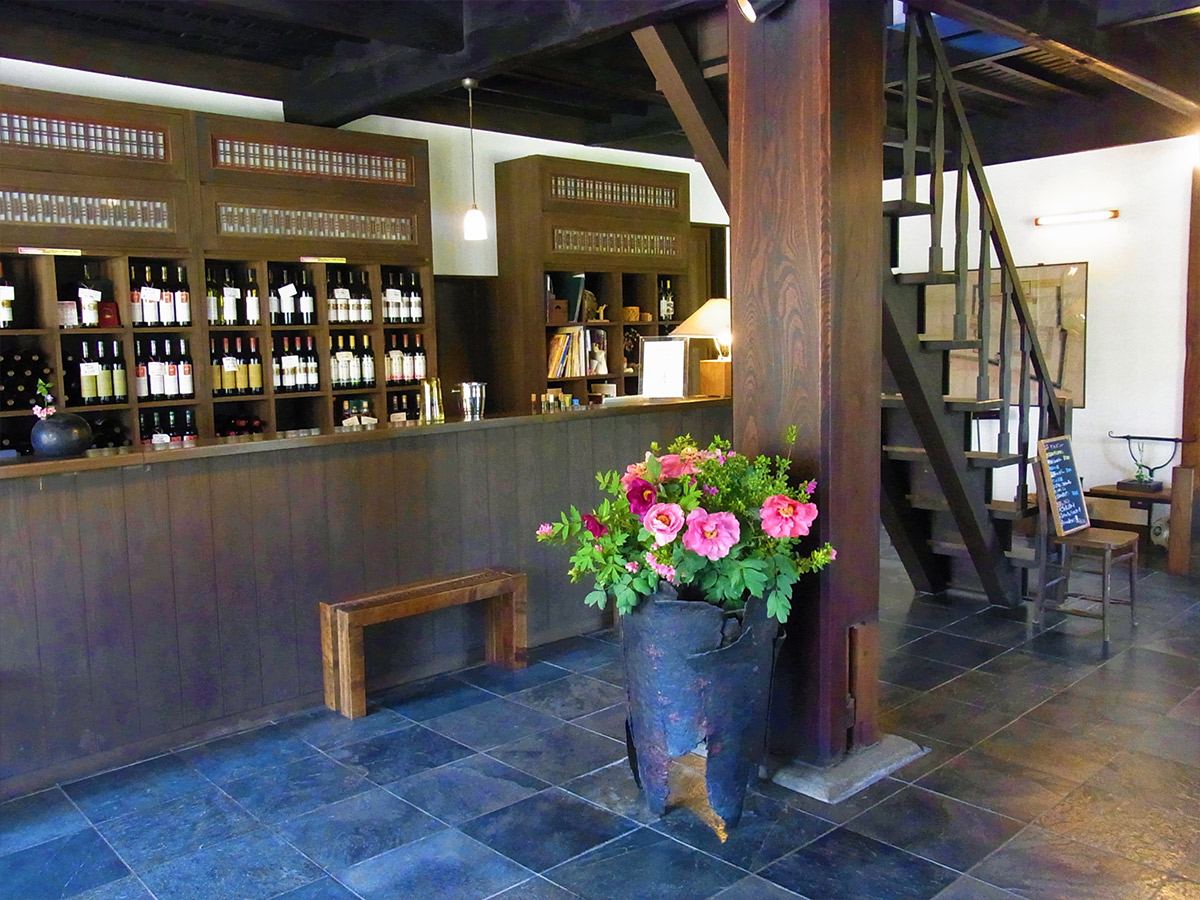
Basic Data
Wine Production Started: 1924
Own Vineyard Area: 1.7 ha
Contracted Farmers: 4 ha
Annual Production: 60,000 – 70,000 bottles
Main White Wine Grape Varieties:
Koshu, Chardonnay
Main Red Wine Grape Varieties:
Merlot, Armo Noir, Syrah, Black Queen, Neo Alicante, Yama Sauvignon, Adirondac


